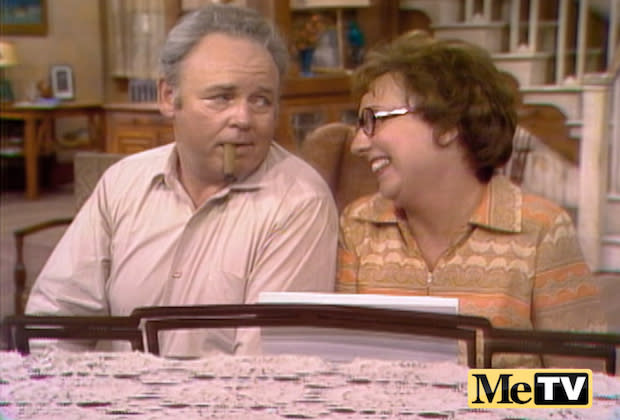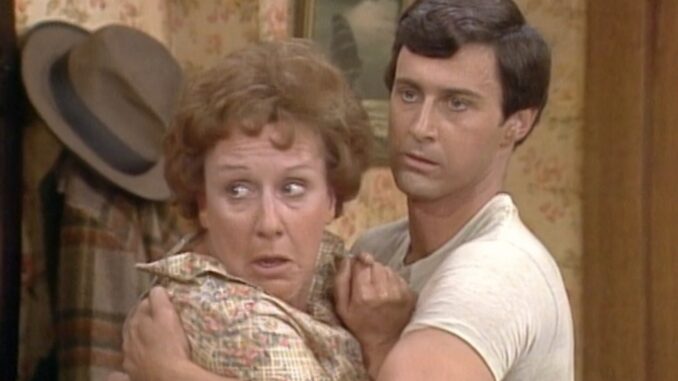
Norman Lear’s seminal sitcom “All in the Family” was known for bringing laughs and thought-provoking discussions, but a 1977 episode entitled “Edith’s 50th Birthday” was an outlier. Instead of a comedy, the two-parter felt like a horror show, one with a gravely serious topic: rape. In it, family matriarch Edith Bunker (Jean Stapleton) survives a harrowing, extended assault attempt by a stranger and is forced to muddle through the aftermath of intense trauma. It’s a dark point for the series, but it’s one that show creator Lear said elicited the strongest live-action response of any moment in the show’s nine-season run.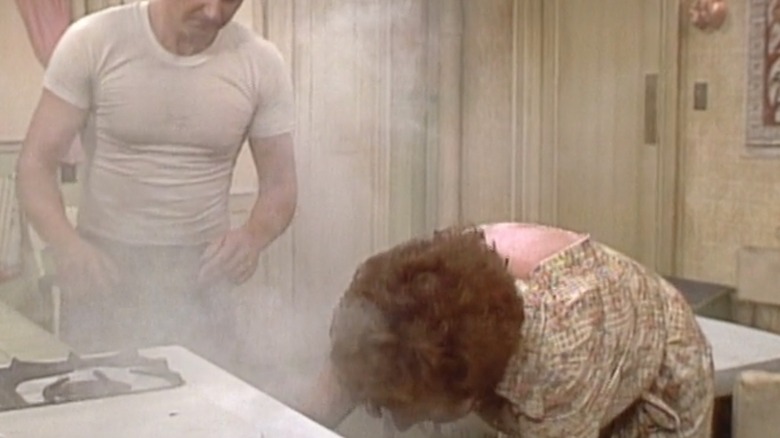
Norman Lear’s seminal sitcom “All in the Family” was known for bringing laughs and thought-provoking discussions, but a 1977 episode entitled “Edith’s 50th Birthday” was an outlier. Instead of a comedy, the two-parter felt like a horror show, one with a gravely serious topic: rape. In it, family matriarch Edith Bunker (Jean Stapleton) survives a harrowing, extended assault attempt by a stranger and is forced to muddle through the aftermath of intense trauma. It’s a dark point for the series, but it’s one that show creator Lear said elicited the strongest live-action response of any moment in the show’s nine-season run.
In an interview with The Hollywood Reporter in 2017, Lear (who died at the age of 101 in 2023) was asked to recall the biggest audience uproar in the show’s history. “I never heard a bigger sound on television than when Edith got away from the guy who was attempting to rape her,” Lear said. “That was an explosion.” It’s not tough to imagine why. The first half of “Edith’s 50th Birthday” unfolds in what feels like excruciating slow motion as a man posing as a detective (character actor David Dukes) forces his way into the Bunker home and attempts to rape Edith at gunpoint.
Edith stalls the assault with excuses that might be intended to make the audience laugh, but her chatty personality and tendency to default to kindness at every turn aren’t funny here. She asks to go to the restroom, insists that she’s married, pretends to be sick, offers the man coffee or all the money she has on hand (eight dollars) instead, and finally, heartbreakingly, says, “Couldn’t we do this without kissing?” Every push and pull in their conversation — during which the man is often manhandling and menacing her — feels like torture, and it’s certainly not the type of scene sitcom audiences would’ve expected to see when they arrived in the studio.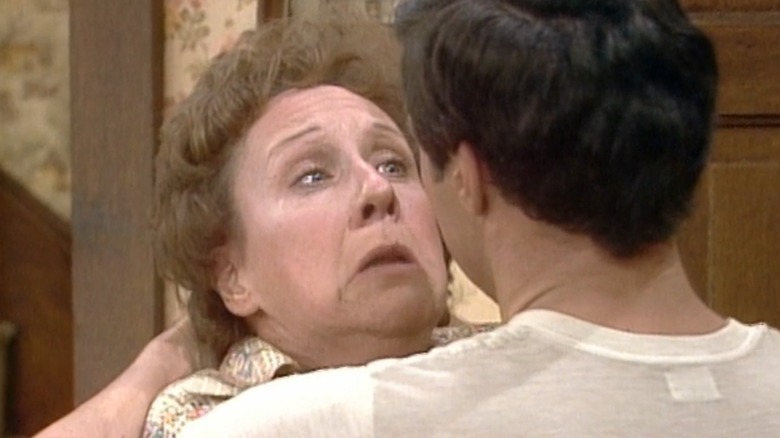
In the end, neither a call from her friend Sybil (Jane Connell) nor a quick appearance by her husband Archie (Carroll O’Connor) can save Edith, but she saves herself. She sees an out when her own birthday cake starts burning, and leads the stranger into the kitchen pretending there’s a fire. When she opens the oven, she grabs the blackened cake and throws it in his face. Then, as Lear puts it, she “kicked him in the balls and pushed him out the door.” The episode ends, disturbingly, with Edith rushing into her own surprise party screaming, collapsing into Archie’s arms in what he eventually realizes are not happy tears.”Edith’s 50th Birthday” is terrifying, even now. Nearly half a century later, it hits hard and relentlessly, and its lengthy, humor-tinged attempted assault sequence would surely still be considered polarizing had it aired today. It certainly was at the time: the night the episode aired, TV critic Tom Shales wrote for The Washington Post that it was “heartbreaking” to see the attempted rape of “national treasure” Edith Bunker. Still, Shales saw the story as necessary. He continued:
“To some, subjecting an icon as beloved as Edith to this sort of indignity may seem too cruel, but that is the point of the program — that rape is not only a crime, but a desecration, and that its victims may remain victims long after the crime itself has been committed.”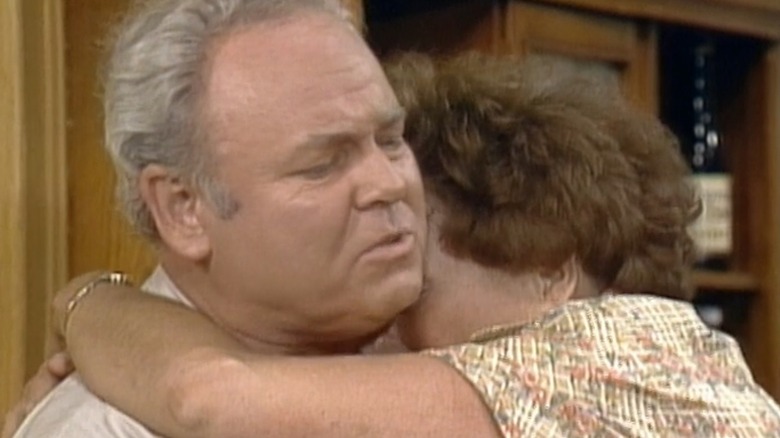
Thankfully, Lear and episode writers Bob Schiller and Bob Weiskopf made sure to do their due diligence when it came to portraying the traumatizing scenario with sensitivity and authenticity. “For the episode that dealt with Edith’s attempted rape, we consulted a woman who specialized in that area,” Lear told THR, noting that “wherever and whenever we needed help [addressing issues in the show], we found it.”
As harrowing as the episode may have been for studio audiences and unsuspecting viewers, it had an important net positive outcome: Lear said the consultant who helped with “Edith’s Birthday,” Gail Abarbanel, was able to open a rape crisis center in the wake of the episode’s publicity. “As a result of all the press that episode got, she started the Rape Treatment Center in Santa Monica, which has had a huge influence on the issue across the country,” he explained in the 2017 interview. According to a UCLA retrospective on Arabanel’s career, the former social worker had already opened the center by 1974, but “All in the Family” raised its profile considerably — and opened up the door to talking about assault.
“It really raised the nation’s consciousness,” Abarbanel said in the 2015 interview, noting that women including those he worked with personally opened up to Lear about their own histories of sexual violence after “Edith’s Birthday” aired. “He was so moved that he became a founding member of the board and helped us raise money and break the silence about rape to build community support,” she explained.
Behind the scenes, the episode also set a vital (yet unfortunately, still often-ignored) precedent for TV writers to consult with the people whose experiences they want to portray. According to Abarbanel, when Lear called her about the episode, he asked: “If you could talk to 40 million people about rape, what would you want to say?” Her answer became “Edith’s Birthday,” a powerful, frightening episode of “All in the Family” that still elicits chills, tears, and — in its climactic cake-throwing scene — uproarious cheers decades later.
